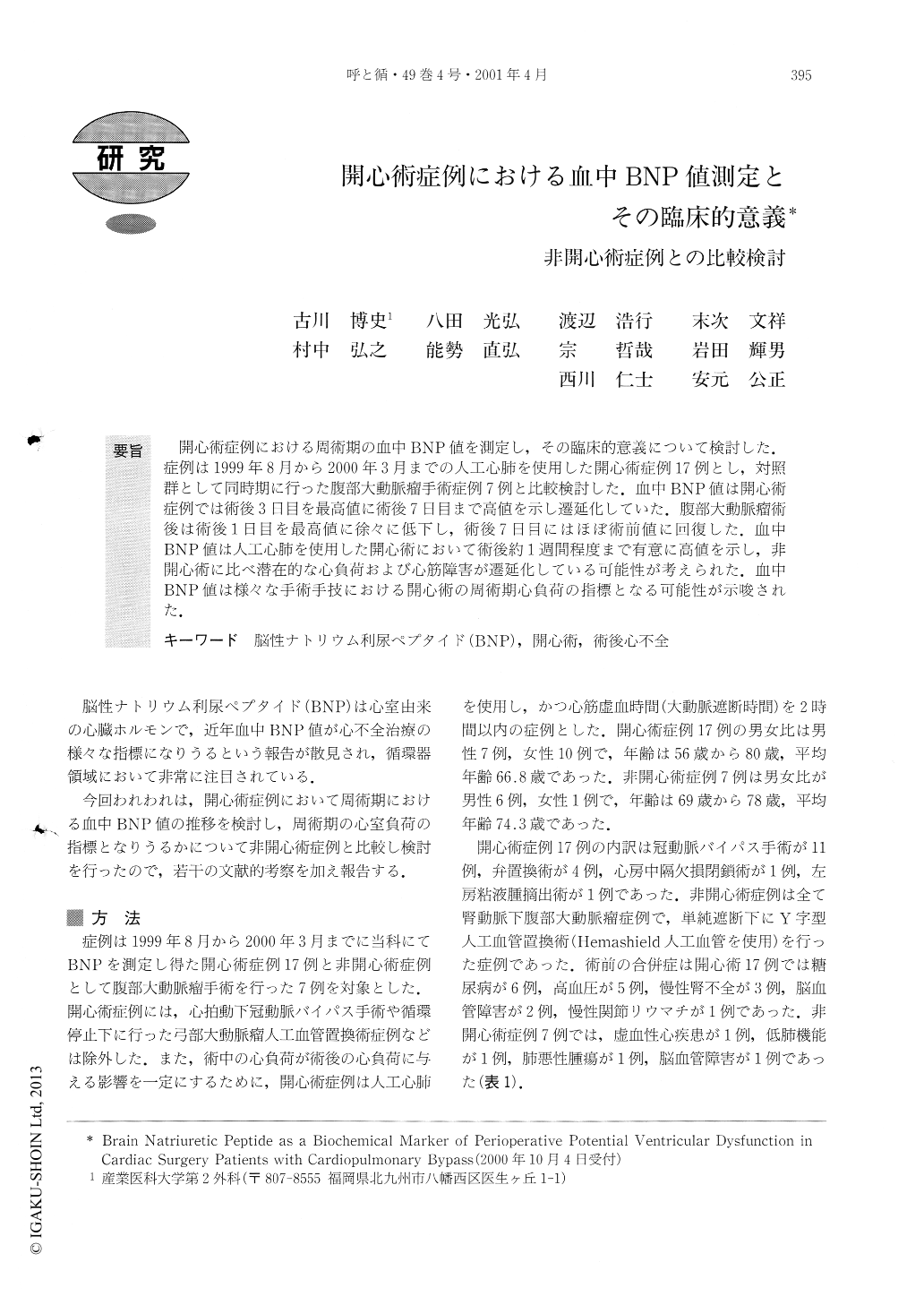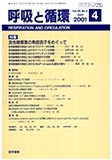Japanese
English
- 有料閲覧
- Abstract 文献概要
- 1ページ目 Look Inside
要旨 開心術症例における周術期の血中BNP値を測定し,その臨床的意義について検討した.症例は1999年8月から2000年3月までの人工心肺を使用した開心術症例17例とし,対照群として同時期に行った腹部大動脈瘤手術症例7例と比較検討した.血中BNP値は開心術症例では術後3日目を最高値に術後7日目まで高値を示し遷延化していた.腹部大動脈瘤術後は術後1日目を最高値に徐々に低下し,術後7日目にはほぼ術前値に回復した.血中BNP値は人工心肺を使用した開心術において術後約1週間程度まで有意に高値を示し,非開心術に比べ潜在的な心負荷および心筋障害が遷延化している可能性が考えられた.血中BNP値は様々な手術手技における開心術の周術期心負荷の指標となる可能性が示唆された.
We evaluated the change of brain natriuretic peptide(BNP) in patients undergoing cardiac surgery withcardiopulmonary bypass (CPB), and compared it withpatients undergoing non-cardiac surgery. The subjectswere 17 consecutive patients undergoing cardiac surgerywith CPB and 7 non-cardiac surgery patients undergoing graft replacement for infrarenal abdominal aorticaneurysm (AAA) from August, 1999 to March, 2000.The perioperative level of BNP was measured on thepreoperative day and 1 day, 3 days, 5 days and 1 weekafter the operation. The level of BNP remained highuntil one week after cardiac surgery with CPB, butslowly decreased to the normal range by one week afternon-cardiac surgery. From these results, BNP might bea good indicator for potential ventricular dysfunctionand damage due to cardiac surgery with CPB.

Copyright © 2001, Igaku-Shoin Ltd. All rights reserved.


